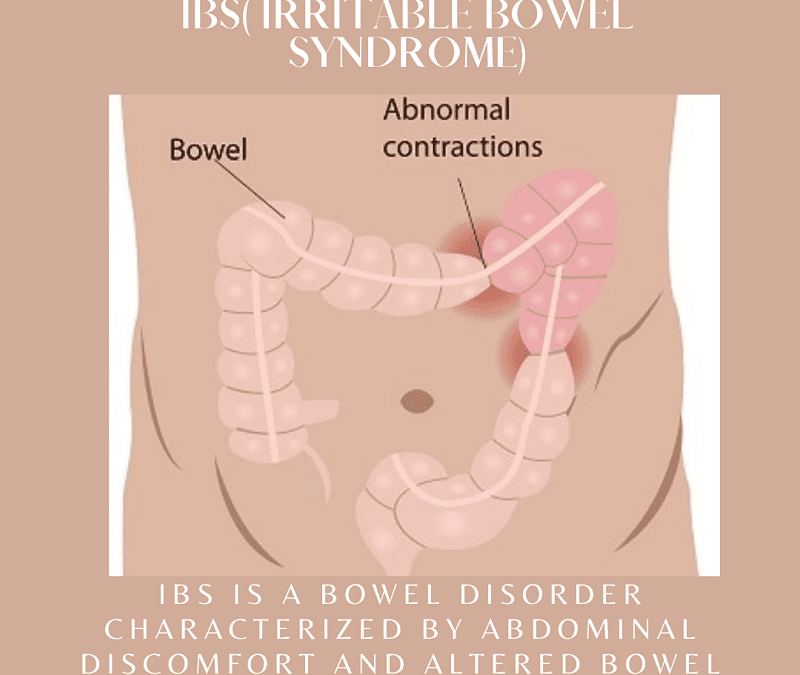AYURVEDIC MANAGEMENT OF IRRITABLE BOWEL SYNDROME (IBS)
Irritable Bowel Syndrome or IBS is a bowel disorder characterized by abdominal discomfort and altered bowel habits. Around 10-20% of adults and adolescence of the world have symptoms of IBS. There are no significant diagnostic markers developed to detect IBS and hence the physician has to depend on the clinical presentation of the patient for diagnosis.
Major clinical features
1. Abdominal Pain
Abdominal pain is manifested with great variation during Irritable Bowel Syndrome. It is commonly episodic and crampy, but may also persist as a constant ache. It may be mild enough to be ignored or may hamper the daily activities. Pain is aggravated by eating or emotional stress while it is relieved with the passage of flatus or stool.
2. Altered Bowel Habits
It is the most consistent clinical feature of IBS. The common manifestation shows constipation alternated with diarrhea. Most patients often complain of incomplete evacuation which leads to repeated attempts of defecation in a short period of time. Stools are usually hard with narrowed passing and sometimes may be accompanied by the passage of a large amount of mucus.
3. Gas and Flatulence
Abdominal distension and belching or flatulence are commonly observed in the patients of Irritable Bowel Syndrome or IBS.
4. Other symptoms
- Dyspepsia
- Heartburn
- Nausea
- Vomiting or Vamana karma
Causes of IBS / Irritable Bowel Syndrome
The cause of IBS has not been fully understood but is assumed to be multifactorial. Some of the factors associated with IBS have been listed below:
- Gut Hypersensitivity – Exaggerated sensory responses to gut organs stimulation
- GI Motor Abnormalities – Malfunction in the muscles of gut that move the food through gut
- Central Nervous System Dysregulation – Inability of CNS to regulate digestive system
- Gut Mucosa Inflammation – Immune reactions in the gut region
- Altered Gut Flora – Small intestinal bacterial overgrowth
An Ayurveda perspective on IBS
Irritable Bowel Syndrome is comparable to the disease called Grahani Gada described in Ayurveda. Grahani is considered as the seat of the digestive fire in our body. All the food materials we feed upon are hold in Grahani for digestion. When digestive fire becomes weak, partially digested and partially undigested food moves down in the GI tract producing Grahani Gada.
The main cause of Grahani Gada has been attributed to unhealthy dietary habits. The formation of Ama due to such unhealthy dietary habits and vitiation of digestive fire due to Ama has been recognized as the immediate cause of Grahanai Gada.
Common clinical features of Grahani Gada
- Passage of stool in excessive quantity or frequency
- Stool may be loose or in the form of pellet
- Anorexia
- Distaste/ Bitter or sour taste in the mouth
- Belching having the smell of undigested food
- Vomiting
Ayurvedic treatment approach in Irritable Bowel Syndrome (IBS)
The Ayurvedic approach for treatment of IBS includes dietary regulations, oral medication and therapies if necessary.
Dietary regulation
According to concept of Ayurveda the first approach for treatment of any kind of disease is the withdrawal of causative factors. Viewing Irritable Bowel Syndrome / IBS from the Grahani Gada perspective, we can point out unhealthy dietary habits as one of the primary causative factor. Hence dietary regulation is a must for the treatment of IBS.
The following foods are likely to aggravate the symptoms of IBS and hence should be avoided:
Apple, Mango, Peach, Pear, Watermelon, Asparagus, Garlic, Onion, Cauliflower, Mushroom, Lentils, Chick peas, Legumes, Wheat, Barley, High fructose corn syrup
Ayurveda has recommended the use of buttermilk in the case of Grahani Gada.
Oral medication for Irritable Bowel Syndrome
Ayurveda recommends removal of Ama and reinstating digestive fire as the principles of management of Grahani dosha which applies to IBS too.
Deepana (medicine helpful in igniting digestive fire) and Pachana (medicines enhancing the process of digestion) for dealing with Ama.
Medicines including ingrdients like Sunthi (Dried Ginger/Zingiber officinale), Maricha (Black pepper/Piper nigrum), Pippali (Long pepper/Piper longum) and Chitraka (Plumbago zeylanicum) would serve the best. But it is better to consult Ayurveda physician before taking medicine.
Other than these medications can also be prescribed according to the condition of patient for symptomatic management. Such as herbal laxatives in case of constipation and anti-diarrheal for the case of diarrhea.
Therapeutics
Langhana therapy or fasting is recommendable in most cases of IBS. Other therapies including Virechana (purgative) and Vasti(enema) can be recommended in cases of chronic constipation observed in IBS.
Yoga approach for IBS
Clinical evidences strongly support the link between emotional disorders and stress with Irritable Bowel Syndrome symptom aggravation and relief of IBS symptoms with therapeutics acting on cerebral cortex of brain
Yoga practices include variety of anti-stress techniques within it. Yoga practices of asana and meditations can thus be helpful in relieving symptoms of IBS.
